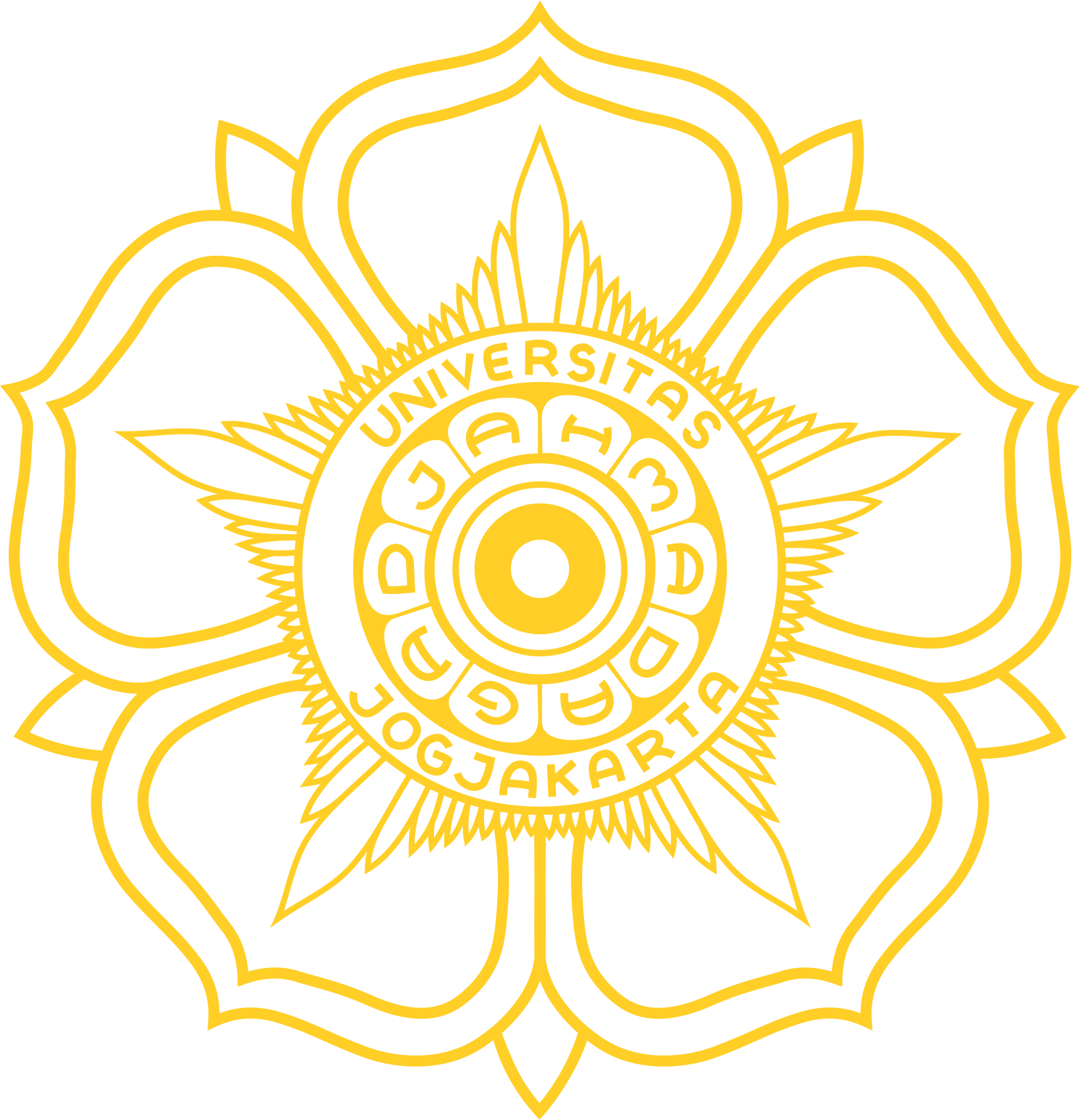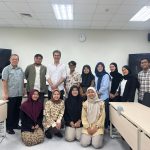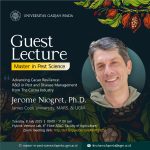Master in Pest Science Graduate Profile:
- Analyst of pest science in the government,
- Scientist in national and multinational institution or companies,
- Consultant in Plant Protection,
- Entrepreneurs.
Program Educational Objectives (PEO)
- PEO1 Graduates will demonstrate an understanding and application of Pancasila principles in all aspects of pest science, reflecting a commitment to the philosophical and ethical values integral to Indonesian society.
- PEO2 Graduates will be prepared to continuously update their knowledge and skills in response to the rapidly evolving field of pest science, adapting to new challenges and technologies in the field.
- PEO3 Graduates will be equipped to solve pressing societal or industrial problems, particularly in the context of pest management. They will learn to manage research data effectively to ensure validity and prevent plagiarism and to communicate their findings effectively to academic, professional, and broader communities.
- PEO4 Graduates will be able to perform accurate and efficient pest identification using state-of-the-art methods and tools, keeping up with advancements in the field and will be skilled in applying advanced technologies and methodologies in pest science.
The Program Learning Outcomes (PLO) of the Master in Pest Science program UGM aim to:
| Code | PLO |
| A1 (PLO1) | Demonstrate the Pancasila attitude and be aware of the interests of the Indonesian nation and state. |
| A2 (PLO2) | Demonstrate professional integrity, be honest, responsible, self-confident, emotionally mature, academically ethical, and aware of being a lifelong learner. |
| K1 (PLO3) | Theoretical Knowledge: Able to explain the mechanisms and impacts of various pest management methods, including biological, chemical, physical, molecular, quarantine and cultural approaches. |
| K2 (PLO4) | Knowledge and Understanding: Able to demonstrate in-depth and advanced knowledge of the taxonomy, physiology, ecology and toxicology of agricultural pests in Integrated Pest Management as well as recognizing the challenges and opportunities posed by emerging crop pests due to climate change. |
| GS1 (PLO5) | Able to develop logical, critical, systematic and creative and scientific thinking through scientific research, creating research designs, based on scientific principles and ethics, using an inter/multidisciplinary approach, to solve community/industry problems, and managing research data for validity and prevention plagiarism, as well as communicating it through the media to the academic, professional and wider community. |
| GS2 (PLO6) | Able to make decisions in solving problems of developing science and technology in the field of pest science, and developing inter/multidisciplinary work networks, as well as increasing independent learning capacity. |
| GS3 (PLO7) | Innovation and Creativity: Create entomological business including innovative solutions for pest management, considering sustainability and business viability. |
| SS1 (PLO8) | Technical Skills: Gain proficiency in modern pest identification, monitoring, management technologies and apply advanced laboratory and field techniques for pest control effectively, efficiency and safely. |
| SS2 (PLO9) | Practical and Professional Skills: Able to create and/or implement Integrated Pest Management strategies in an inter/multidisciplinary manner in a real-world agricultural environment by considering economic, ecological and sociocultural implications. |



